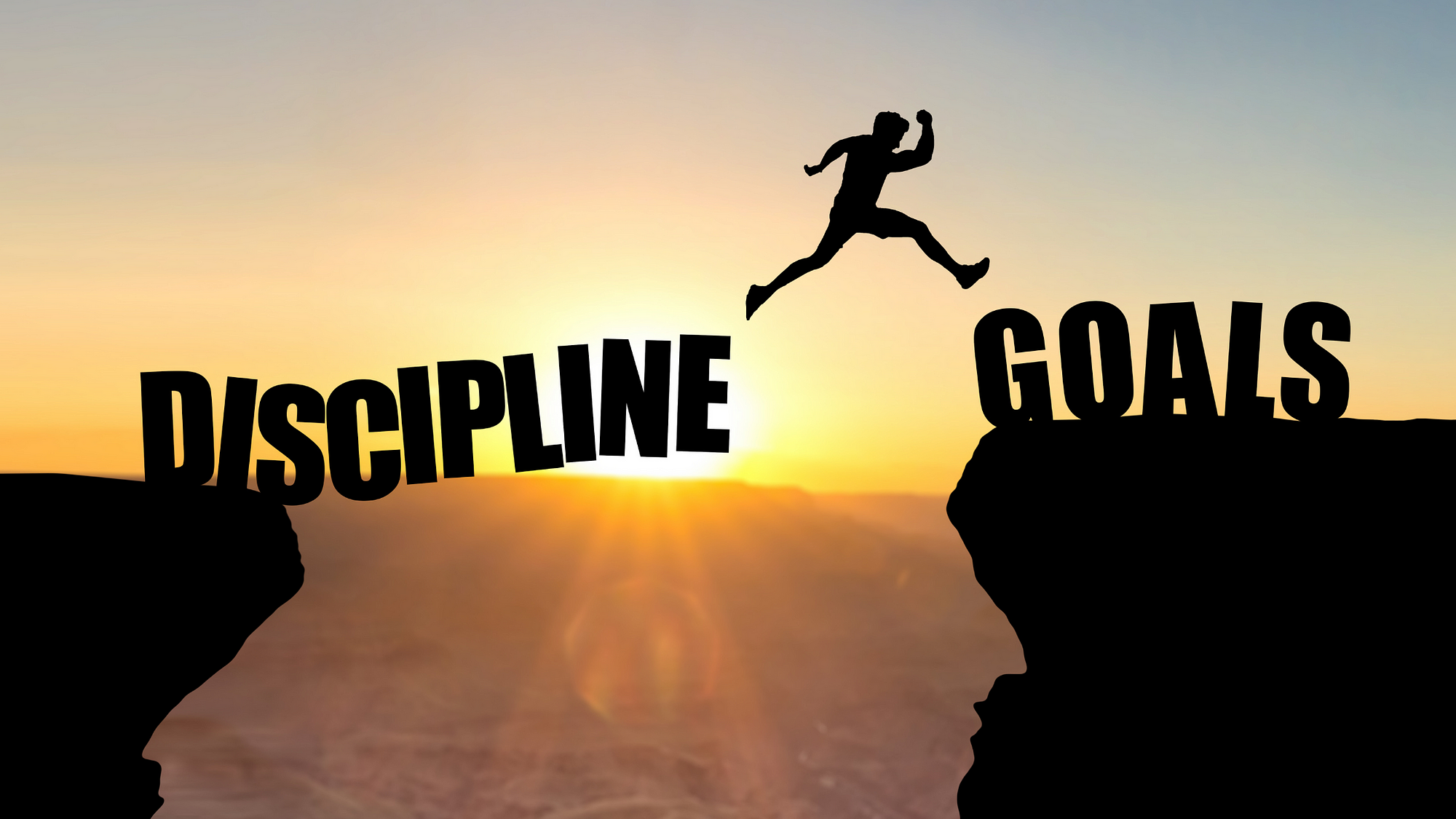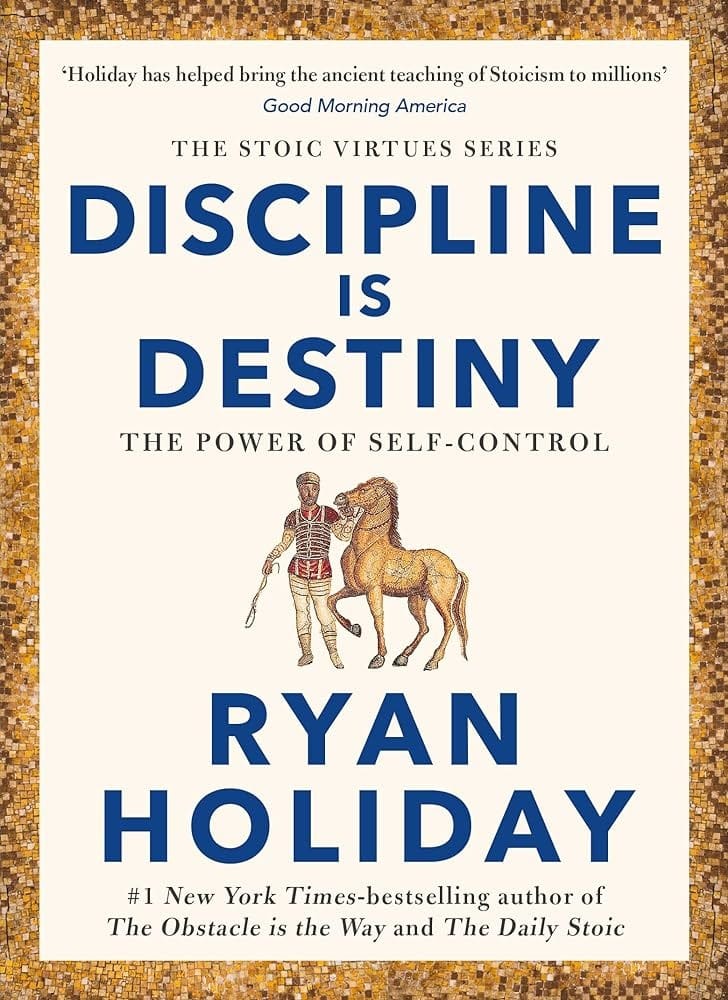Virtue II - Discipline

There are two definitions of discipline that are especially useful:
I) Doing what must be done regardless of whether you feel like it or not.
II) Choosing what you want most over what you want right now.
Discipline is synonymous with agency and self-control. Together, these definitions capture the essence of discipline, which is more of a practice than anything else. There's a reason why discipline is central to the code of highly acclaimed groups like the Navy SEALs, Spartans, Samurai, Medieval knights, and successful individuals such as Jocko Willink and Steve Jobs. The most outstanding characteristic they all have in common is discipline.
Here is how discipline can improve your life.
Discipline will free you to execute the actions that will lead to favorable progression in your life
Oftentimes we tell ourselves that we are going to make improvements, like cleaning up our diet, exercising regularly, quitting bad habits, waking up earlier, reading more books, writing a blog, starting a business, etc, but fail to follow through because we lack agency. The desire for a not-so-healthy-snack overpowers our capacity for self-control. The alarm goes off but we're too tired to get out of bed because we stayed up late scrolling. We want to make more money but we'd rather watch Netflix than start a side hustle.
Without discipline, you don't have control over your actions. You are at the mercy of the next desire, impulse, or distraction. Discipline empowers executive function, bridging the gap between what you know you should do and actually doing it. As Navy Seal Jocko Willink puts it: "Discipline equals freedom."

Discipline will enable you to achieve long term goals
Motivation is that rush of endorphins we get when we first embark on an endeavor. For instance, in his book The Great Rat Race Escape, MJ Demarco describes what he calls a "Fuck This Event," which is the point where an aspiring entrepreneur's 9-5 becomes so intolerable that they decide to start their own business.
While motivation is great for overcoming the inertia of starting, it fades after the initial excitement wears off. And the time it takes to achieve anything worthwhile - whether it be establishing a profitable business, chiseling your dream physique, or sustaining a "happily ever after" intimacy - invariably exceeds the motivation phase. This is why you must have the discipline to chip away at your business, exercise regularly, and nurture your relationship, even when you don't feel like it. While it might be challenging at first, discipline is like a muscle; the more you exercise it, the stronger it gets.
Discipline will boost your self-esteem
Every time you say you will do something and follow through, you gain self-esteem. You prove to yourself that you can be trusted, increasing your confidence in your ability to follow through on future tasks.
While "self-esteem" may sound elementary, do not overlook its importance. If your belief in your abilities is lacking, you will subconsciously sell yourself short in all areas of life. Discipline builds self-esteem, enabling you to live up to your fullest potential.
Discipline -> Self-Esteem -> Success
Discipline will improve your character
Since discipline is synonymous with agency and self-control, it will make you a better person. Having the discipline to refrain from saying regrettable things, even when you want to give someone a piece of your mind, can be the difference between keeping and losing a relationship. Having the discipline to refrain from punching your co-worker in the face, even if they deserve it, can be the difference between going to jail and going home after work.
Discipline will also protect you from the perils of addiction and dependence, whether it be drugs and alcohol or TikTok and doughnuts.
Example of how cultivating discipline can change one's life
James, a 22-year-old recent college grad, found himself at the lowest point of his life. He spent all of college barely passing his classes, getting high, playing video games, and turning the "freshman fifteen" into the "senior seventy." His girlfriend, looking for someone to build a life with, left him because she was rightfully concerned for his future. His parents, livid that he ungratefully wasted the college experience they financed, gave him six months to find a job and move out. This was the wake-up call James needed to get his act together.
Still lacking the discipline to take action, James, while mindlessly scrolling on Instagram, saw Josh Vecchio's Instagram reel about discipline, and Josh's message resonated with him. After learning that discipline is the foundation for change, James decided to buy the book Discipline Equals Freedom by Jocko Willink. James made a promise to himself that every day for the next two weeks, he would wake up at 6 am, spend the first hour job hunting, exercise the next hour, and quit weed altogether.
James felt a surge of motivation to turn his life around like he'd never felt before, and this wave of motivation drove him to hit his goals for the first week. The second week was more of a struggle. James woke up Monday morning tired and sore, craving his "wake and bake" routine. But James chose what he wanted most—getting out of the hole he dug himself—over what he wanted right then: to get high. Every cell in James' body wanted to stay in bed, but, remembering that discipline requires doing what must be done whether one feels like it or not, James picked himself up, turned on his computer, and kept job hunting.
It was a good thing he did because he saw a time-sensitive LinkedIn notification about an entry-level opening at a nearby bank. To express his interest, James drove to the bank and submitted his application in person. James got the job and used an online roommate finder to ensure that the people he was surrounding himself with wouldn't distract him. A year later, James was promoted to a management position that doubled his salary, and was in the best shape of his life. Having proven to himself that he can do what he sets out to do, James' self-esteem was sky high, and this newfound self-esteem gave him the confidence to introduce himself to a nice young lady at the gym, who ended up becoming his wife and the mother of his kids. James now lives a fulfilling life, and the foremost value he instills in his children is, you guessed it, discipline.
Actionable steps you can take to cultivate discipline
Start small to gain traction; momentum will build.
Go to bed and wake up at the same time. It doesn't necessarily have to be early, depending on your schedule and sleep chronotype (early bird/night owl is a real thing). Get enough high-quality sleep; there's nothing noble about intentional sleep deprivation. What's most important for your sleep hygiene and developing discipline is going to bed and waking up at the same time as consistently as possible.
2) Set and accomplish reading goals
I cannot overemphasize the power of reading for transforming your life. Combine reading with goal setting to learn more while building discipline. Set a goal—pages per day, time spent reading, or books per month. I suggest starting with 30 minutes before bed each night and build from there. What matters most is that you set a goal and stick to it no matter what.
3) Eliminate the top 3-5 least healthy foods from your diet
This will train you to choose what you want most, optimal health, and a disciplined mind, over what you crave in the moment.
4) Take cold showers
In addition to the scientifically proven health and cognitive benefits of cold showers, the contrast between your warm, comfortable bed and the icy blast of a cold shower makes it a perfect opportunity to do what you say you will, even if it's uncomfortable.
5) Make a budget
Financial considerations aside, setting spending limits forces you to be a disciplined spender. We've all heard horror stories of undisciplined spending: credit card debt, overdraft fees, and bankruptcy. Discipline is critical for financial health.
6) Set an exercise regimen
Determine a number of days per week and minutes per workout you can reasonably commit to. There are bound to be days when you don't feel like exercising, which is when you apply discipline and exercise even when you don't want to.
7) Control Your Speech
Practicing discipline in your speech is a powerful way to improve self-control and agency. Set a goal to eliminate swearing or any impulsive, negative language. This will train you to think before you speak, ensuring your words are intentional and constructive. Controlling your speech not only enhances your self-discipline but also positively impacts your relationships and professional demeanor. Just as with other forms of discipline, the more you practice mindful communication, the more natural it becomes.
As you can see, discipline bleeds into nearly every facet of life, so the applications are nearly limitless. The themes underlying the concept of discipline is to do what you say you are going to whether you feel like it or not, and to do what you say you are going to do.
Recommended Reading

